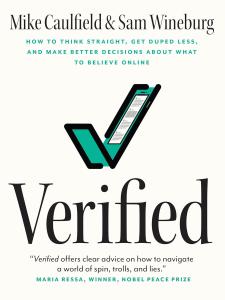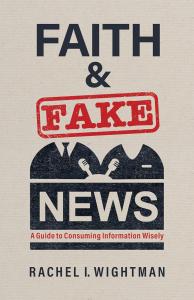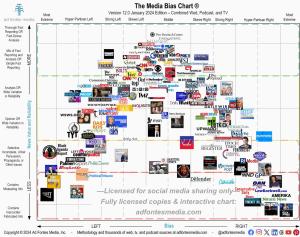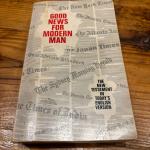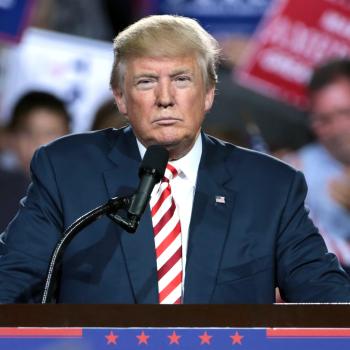When I proposed to my fiancée a few years ago, not only was I excited to become a married man, but I was also anticipating building relationships with her three grown daughters. What I did not realize however, was that there would be a fifth woman in the picture –Taylor. You see, two of my stepdaughters are inveterate “Swifties.” Road trips are full of Taylor Swift songs complete with explanations of the story behind each song. Birthday and Christmas gifts are inspired by Taylor, no concert or movie is missed, and some are attended twice just for good measure. I could go on, but you get the picture.
For at least the third time now, someone in the social media world has had fun altering an image of Taylor Swift to show her holding a “Trump Won Democrats Cheated!” sign. Most recently this was done to the Variety video of her on the red carpet at the Grammys and was posted on X. Posted under the video was a link with these words: “Stay Informed, Manipulated media find out more.” If you click on “find out more” you are taken to X’s Synthetic and Manipulated Media Policy.
Oh that all manipulated information was so clearly labeled! Manipulated information is not a new phenomenon. Forged documents have existed ever since writing began. Winners explain their victories in such exaggerated language that you would think their side made no errors. Revolutionaries describe the establishment as pure unadulterated evil. Colonizers are entertained by the childlike simplicity of their black or brown subjects. Then there is the medical doctor who invented the word drapetomania to describe the “psychological disorder” that made African American slaves run away. Yes, manipulated information is not new. Despite all the warnings about generative AI’s dangers, people have not needed AI to manipulate information.
Guess who makes a career out of interpreting manipulated information? That’s right, historians! Historians study the written record of our past, and we know that every author of every piece of writing held biases, had interests, and wrote for a particular audience. I teach my students that all information is biased, and manipulated information is merely an extreme form of biased information.
Since all information is biased, that means that I do not consider bias to be inherently bad. All humans have a bias informed by their time, place, and space. Historians are concerned with properly interpreting the bias of a document, not wondering if one exists. Bias is implied in the status and interests of the writer. It just is. Extreme forms of bias are when information is intentionally manipulated in a way to deceive the recipient. But of course, there is satire and parody. Properly reading information can be tricky. Everyone who follows Taylor Swift knows that her few political comments suggest strongly that she leans Democrat and the X account on which it appears openly claims to contain “a little bit of parody.” So we appreciate the humor of the photo.
But while historians are trained to wade through bias for breakfast, that’s not the case for every other college discipline or for those without liberal arts college degrees. If historians find our current information ecosystem daunting (and they do), others are certainly overwhelmed and burned out, and inclined to resort to cynicism, fatalism, or nihilism in response to the onslaught of information, misinformation, and disinformation.
No one can intentionally make a good decision using bad information. The greatest under-emphasized truth about democracy is that its citizens need good information in order to govern themselves well. The second greatest under-emphasized truth is that those citizens need the ability to sift through the bias, or manipulation, in the information that they access. The former is a resource, the latter a teachable skill. The health of our republic depends on both of them. To this end, our federal government needs to write laws that put reasonable boundaries on social media communication, and more states need to follow the lead of New Jersey, Illinois, California, Texas, and Delaware by requiring some form of information literacy education our public schools. Information literacy needs to be on par with math, science, reading, writing, social studies, and the arts. This is more fundamental to preserving our democracy than any vote anyone can cast this year. Public education need to be cherished like the truly public good that it is, but in turn it needs to act like it’s a pillar of our republic.
American society is in a crisis because our information ecosystem is flooded with so much information that the average citizen does not have enough emotional or psychological energy, and probably not enough training, to discern the accurate from the inaccurate. Between making ends meet, taking care of the kids, taking time for yourself and your marriage, and keeping up with friends, hobbies, and church, and cleaning up from all of our bad decisions, who has enough bandwidth left over to figure out fact from fiction in all of the social, economic, and political information fed to us 24/7?
This year, a bunch of exhausted, overstretched, and stressed out American voters who are subject to an ecosystem flooded with bad and misleading information will elect an untold number of government officials. May God help America!
I end this post by offering some links to resources for those who want to educate themselves to be able to winnow the accurate from the inaccurate, the healthy from the unhealthy, and the good from the bad.
by Mike Caulfield and Sam Wineburg
Faith and Fake news: A Guide to Consuming Information Wisely by Rachel I. Wightman


